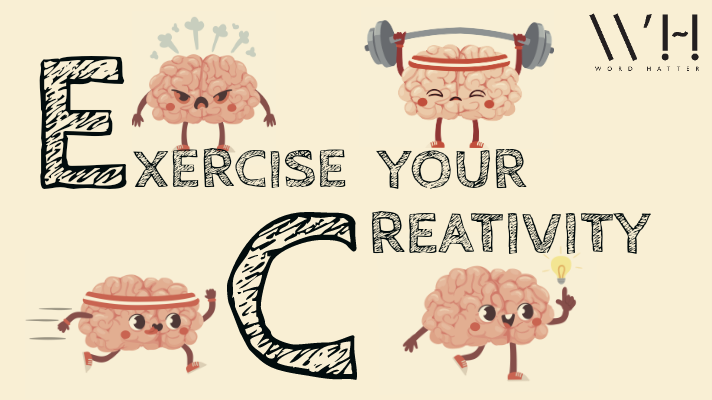Here’s how we nip writer’s block in the bud.
You’ve just opened a new word doc. The cursor blinks at you, waiting in anticipation for those ideas, those thoughts, those feelings – all condensed into one single piece. You lean forward, your fingers approach the keys and…nothing. Maybe you’re bored. Maybe the words are all jammed in your head. Maybe you’re distracted by a drip of water in the sink. There are many things that can dry up your creative juices. But before you give up, you should know that there are an equal number of ways to get them flowing again.
Here are 5 writing workouts to boost your clarity, creativity and consistency.
- Write about Writer’s Block
If all you can think about is your writer’s block, well, then write about it. Sometimes, you have to grab the bull by the horns and simply write (or type). Set a timer for around 5 minutes, and promise yourself that you won’t stop writing until the time is up (you can stop if the house is on fire). Write about how angry you are, how bored you feel, if you’re too tired to write, type the words of your favourite song. Just get your mind, and fingers, moving again. This is a popular exercise in many writing courses and has helped many a writer break the block.
- Flash Fiction
Nothing exercises the brain like flash fiction. A beloved tool, used in many writing skills courses, flash fiction is a short story captured in as few words as possible (as low as 500 and as high as 2000 – that’s it). Sit down at your computer (or if you’re old school) with a pad and pen and come up with a short story with a plot, conflict and character development. Sometimes your brain just needs a challenge to shake it out of its stupor. It may feel like you’re caging yourself with the word limit, but you’re freeing your brain to consider other forms of expression.
- Alphabet Writing
Sometimes words just aren’t enough. So, go smaller. Consider the letters. Alphabet writing is where you create a story, by starting each line with a letter of the alphabet. So, the first word of each sentence must start with a different letter. This is a great way to explore your vocabulary, as it challenges you to think of different words to fit the context of your story. X and Z should be a fun challenge!
- Three Words
You don’t need to sign up for a content writing course to force yourself to write. Sometimes you just need a quick writing workout to feel inspired. For this exercise, you’ll need a laptop (or notebook), three words and five minutes. That’s it.
- First, settle on the three words you’ll need for the exercise. For instance, axe, melon and cupboard.
- Pick one of the words to be the first word you write. It has to be the first word of the first sentence. For instance, “Melon – it sat in front of her, cubed and sprinkled with sugar.”
- Start the timer and begin writing. Write without stopping (do NOT edit or look at that backspace key). It can be anything that comes to your mind.
- Make sure the other two words (axe and cupboard) appear in your first paragraph.
- Stop when the timer hits five minutes.
Now, take a look at what you’ve written. You may discover interesting connections you made between the three words. You may have written a short story that revolves around these words, or you might chance upon an interesting phrase or wordplay that has come out of your uninhibited thoughts. It doesn’t need to be high quality. What matters is that you’ll find something of interest in this random little paragraph of writing.
- Eight
You’re on google, typing out those words – content writing courses online free. Getting ready to carve out big chunks of your day to learn how to hone your writing skills. This can be helpful – there’s no doubt about that. But before you do, try this exercise first. Go to your bookshelf and pick any fiction book at random. Go to the eighth page and find the eighth sentence. Use that sentence as the first of an eight-line poem. You have 10 minutes to complete your poem. Here’s an example:
The eighth line of the eighth page in Stephen King’s Carrie is “then she went downstairs”. What can you do with that?
Then she went downstairs
No worries, no cares.
The handle of the door, shiny and bright
Leading her to the light.
She slipped outside the house at dawn
Footsteps muffled by the green lawn
Looking back, no tears to cry
She bids her home, goodbye
Is it Shakespeare? Not by a long shot. Does it have structure? That’s debatable. That’s not the point though. We just built a story out of 8 lines and sometimes that’s all it takes. One throwaway line in a book that can lead to a whole new path. Most online writing courses will tell you that inspiration can come from anywhere. This exercise proves them right.
So, when in doubt, try these exercises. Make sure you set a time limit – between 10 or 20 minutes – and then let go. Just write. Mine your brain for the creativity hiding there. You may find coal, but there’s also the possibility of finding diamonds.



